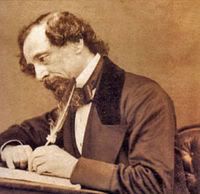We are witnessing what may be the birth pangs of nascent democracy in the Middle East. Or, we may be witnessing something else entirely. A region which has long trailed the rest of the Western world in basic freedoms for its citizens is in the process of long-needed transition. What it will be and what form it will eventually take has yet to be established. This doesn’t mean, of course, that we won’t try to transpose our own understanding upon the scene that lies before us. Especially when we contemplate the unknown, we can fall so easily into dichotomies. When comparing two things simultaneously, it is easy to believe that everything must belong to one part or the other, or, failing that, nothing can belong simultaneously to both parts. Egypt is not Libya, nor is Tunisia exactly like Egypt.
Tag: revisionism
Nov 14 2010
The Week in Editorial Cartoons – Misremembering George W. Bush
Crossposted at Daily Kos and The Stars Hollow Gazette
|
|
|
|
May 10 2009
Dystopia 7: The Rebels
“Yes: death–or renewal! Either the state forever, crushing individual and local life, taking over in all fields of human activity, bringing with it its wars and its domestic struggles for power, its palace revolutions which only replace one tyrant by another, and inevitably at the end of this development there is…death! Or the destruction of the state, and new life starting again in thousands of centers on the principle of the lively initiative of the individual and groups and that of the free agreement. The choice lies with you!”
—Peter Kropotkin
Feb 28 2008
Aristotle, Shakespeare, and Dickens Set Free in China
Crossposted at Daily Kos and also at Truth & Progress
Lost in the hoopla and frenzy of the 2008 Presidential Campaign over the past couple of weeks was an overlooked (though important) anniversary in the Peoples Republic of China. In February 1978 — a year or so after Chairman Mao Zedong’s death — the Chinese communist government lifted a ban on the writings of three of the greatest minds the world has ever seen.
This was a critical development for from their graves, three men long dead — Aristotle, William Shakespeare, and Charles Dickens — were finally free to peddle their ‘subversive’ ideas about the complexity of the human condition.
Aristotle, William Shakespeare, and Charles Dickens




